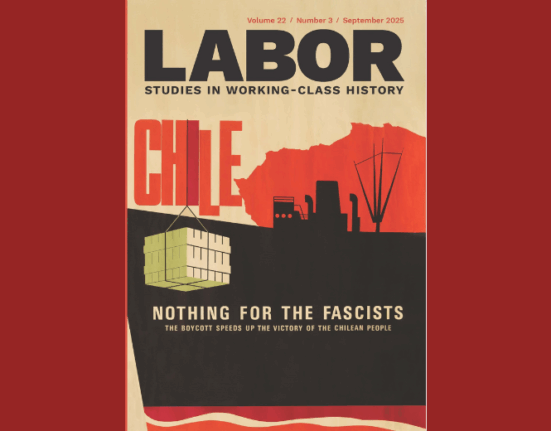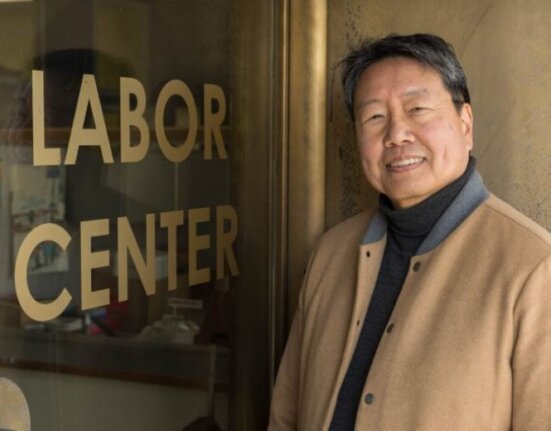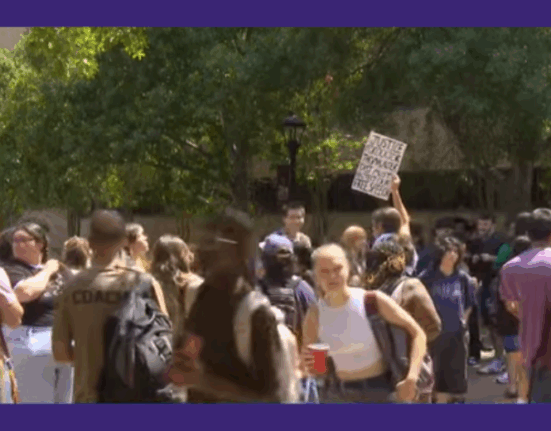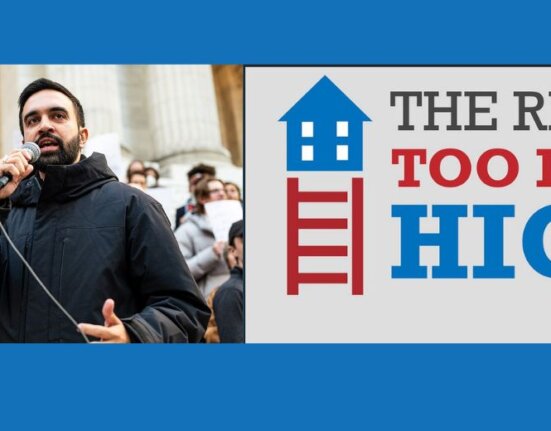Scabby the Rat, a familiar figure on US picket lines, has taken his show on the road. In the past few years, he’s been spotted outside several Australian companies, sometimes accompanied by his pals, Fat Cat and Greedy Pig. Scabby’s journey shows that both anti-labor efforts and working-class feistiness are every bit as global as capitalism and labor.
In Australia, as in the US, trade union membership has declined, and unions have become less visible in the workplace and community. The giant inflatable balloons unions sometimes display outside employer premises echo the long tradition of using trade union banners and other imagery to build solidarity and assert working-class presence. Where earlier images emphasized the value of unions and images of heroic workers, Scabby and his friends focus on a critique of employers and strike breakers. But like so many of the tools unions rely on in fighting for worker justice, these inflatables have become a target for anti-union efforts.

Scabby had his origins in the US in 1990, when he was commissioned by the International Union of Bricklayers and Allied Craftworkers to draw attention to businesses being picketed and send a message to the business owners. The rats, some as big as 30 feet tall, have since been adopted by a number of unions. Scabby has been joined by the cigar smoking Fat Cat with a bag of money in one paw and a construction worker held by the throat in the other. In the US, employers’ efforts to have Scabby deflated have been rejected by the National Labor Relations Board, which ruled that Scabby is protected by the First Amendment. More recently some union leaders sought to permanently deflateScabby, arguing that he does not represent the unions new ‘value proposition’. This call was defeated.
Trade union density in Australia has fallen over the last 25 years, and it now stands at only 14.5%. Unions here have been subjected to harsh legislation that restricts industrial action, legally prohibits secondary boycotts or solidarity actions, has reduced the avenues available for workers to obtain pay increases, and enables employers to bargain with employees in the absence of a trade union. Recent efforts also aim to limit what unions can say or show. An Australian Building and Construction Commission code outlines a number of measures to ensure freedom of association in the building industry by barring unions from displaying signs using language such as ‘100% union’, ‘union site’, ‘no ticket no start’ and from calling employees who do not join the union ‘scab’, ‘rat’ or ‘grub’. Workers are also prohibited from putting images or symbols associated with unions on employer supplied equipment, property, or clothing. This includes anything with the union name or the white stars and cross associated with the Eureka Stockade flag. These types of severe restrictions undermine unions’ ability to make themselves visible and take industrial action, and they have prompted some unions to devise new approaches.
One of these is Scabby the Rat, who made his first Australian appearance in 2016 at the Carlton and United Breweries (CUB) picket line. CUB had not renewed a long standing maintenance contract, leaving 55 workers out of a job because they refused to apply for jobs with the new contractor that would have reduced their wages by 65% and imposed non-union conditions such as individual contracts. The maintenance workers set up a picket line and called the replacement workforce ‘scab’, ‘dog’ and ‘rat’ as they crossed the picket line. Australian Courts have ruled that language like ‘scab’ is offensive and abusive, and upheld the dismissal of a mine worker who held a sign with the words ‘No principles SCABS No guts’. Some ten weeks into the CUB dispute, five workers from the replacement workforce applied to the industrial tribunal, the Fair Work Commission, for a stop bullying order, which including a prohibition against calling the replacement workforce ‘scabs’. The Electrical Trades Union sidestepped these prohibitions by unveiling Scabby the Rat complete with a rat trap in front with a slab of CUB beer as the bait. The unions organised a consumer boycott of CUB beer and demonstration in central Melbourne. After six months, the workers were reinstated on their full pay and conditions.
Scabby’s next major appearance was in June 2017 at the Esso UGL dispute at Longford, Victoria. Esso had awarded a maintenance contract for its onshore and offshore gas processing plant to UGL, which in turn outsourced the work to a subsidiary that offered workers 15 to 30% lower wages, reduced annual leave and allowances and gave UGL greater discretion over work schedules. The unions set up a picket outside the plant and inflated Scabby. UGL responded by seeking damages from the unions, claiming that Scabby and the picket signs coerced current and prospective employees not to work and represented anti-competitive behavior that had caused substantial loss to the company. The Federal Court ordered the unions to deflate and remove Scabby and not display any signs saying ‘Don’t be Scabby the Rat’. The Australian Workers Union assistant secretary Liam O’Brien stated that Esso’s distress over an inflatable rat would be laughable if it were not for the fact that workers’ lives had been turned upside down so a multinational could make more profit. Scabby was replaced with the cigar smoking Fat Cat and Greedy Pig, who were allowed to remain on the picket line because they targeted Esso’s corporate greed rather than workers who crossed the picket line. The unions sought to broaden and publicise the dispute by holding a rally outside Esso’s corporate headquarters on the Yarra River with Scabby and Fat Cat taking rides in boats on the Yarra. The dispute still continues after over 275 days.
Scabby still continues to appear on picket lines, but his appearances have been limited by Court orders. He appeared at the Oakey North mine in Queensland to support 190 workers who had been locked out by mining company Glencore for more than 200 days. In a heated dispute, Glencore issued disciplinary notices to 26 workers its alleged had breached the company’s policy on harassment, bullying, and discrimination on the picket line or Facebook. As part of the resolution process the Construction, Forestry Mining and Energy Union agreed not to use the words ‘grub’, ‘maggot’ and ‘scab’ and to deflate Scabby the Rat until the dispute was resolved. In late February 2018, after a seven month lock out, the Fair Work Commission intervened and ordered the suspension of the lockout and picket line for three weeks until a new collective agreement could be voted on in late March.
Scabby has his own Facebook page where unionists share his global exploits. Scabby and his friends Fat Cat and Greedy have become international figures in labour disputes. With them, unions continue to press the boundaries and assert their visibility, relevance, and power in an environment even as legislation and employers work to silence and hide them. In the face of growing inequality and low wage growth, in future unions may be showing more of Fat Cat and Greedy Pig than Scabby the Rat.







